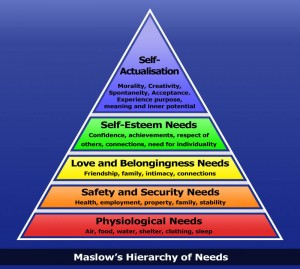We have worms. Actually, there are three senior kindergarten classrooms with worms. Our parent council very generously paid for the vermicomposters and 2 pounds of Red Wrigglers which eat fruit and vegetable scraps from student lunches and snacks. If you don’t mind worms, they are a great class pet – fascinating, easy to handle, quiet and odourless (when fed properly). Setting each vermicomposter up and settling a few hundred worms into their new home is pretty straightforward, but I recommend following the instructions provided in the kit – the worms will be much happier, sooner.
To help with the settling in process, the students used authentic writing to make posters and signs so that visitors to the classroom would be aware of the worms at work. Also, for the first five days, the lights in the classroom needed to be on all the time because if the worms think it is daytime, they will stay in the dirt, otherwise, if they think it is nighttime, they will go out crawling. Signs were made NOT to turn off the lights, tape was placed over the light switch in case it was accidentally turned off, and the custodial staff were alerted and kindly asked to change their evening routines for a few nights. Despite all the warnings and signage, sadly, one classroom wasn’t so lucky with their worms as the light was turned off one evening….The morning I went to check on the Wrigglers , I was shocked to see the floor covered in dried worms scattered in a 5 foot circumference around the vermicomposter… Luckily, there were one or two worms who stayed put and will have to carry on all the work on their own for a while. In time, we will introduce some worms from the other 2 vermicomposters to increase the colony (if that’s what you call a collection of worms), however, the lights-on routine will have to happen again to make sure another exodus is averted.
We have big plans for the worms. So far, we’ve read the Diary of a Worm, made a poster of what they like to eat, and a mural of the underground world of worms and insects, using lengths of brown wool as worms that can be easily glued into squiggly tunnels. After a Knowledge Building Circle, we collected a host of intriguing questions the students have regarding how the worms live, eat, why they are the colour they are, etc. and so we will be guiding the students through this inquiry with the help of books, collective knowledge in our group, and observation. What’s fun is that the questions about worms are leading into wondering about other creepers and crawlers in our world – spiders, centipedes, beetles. And although winter will soon be upon us and the bug world out in our school yard will be covered in snow, the Museum of Nature in Ottawa has just begun a major show on insects which will run until the spring and which many students will be thrilled to attend. Myself included.


 does not get enough attention. I’m talking about mental health in schools.
does not get enough attention. I’m talking about mental health in schools.